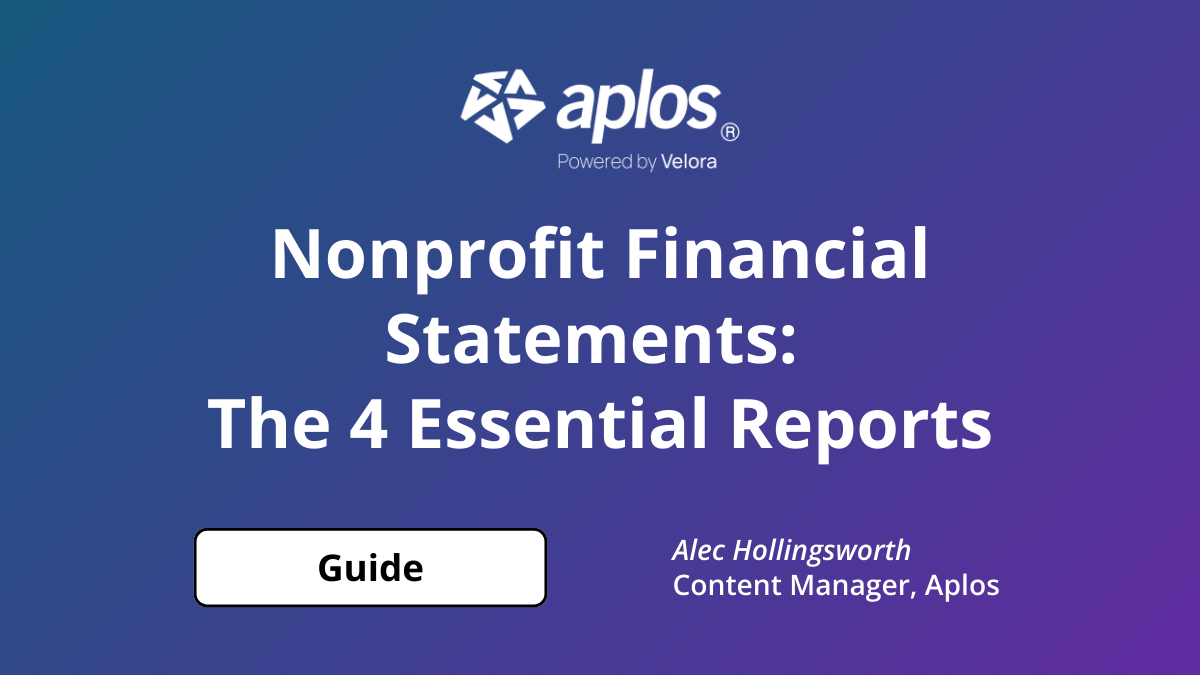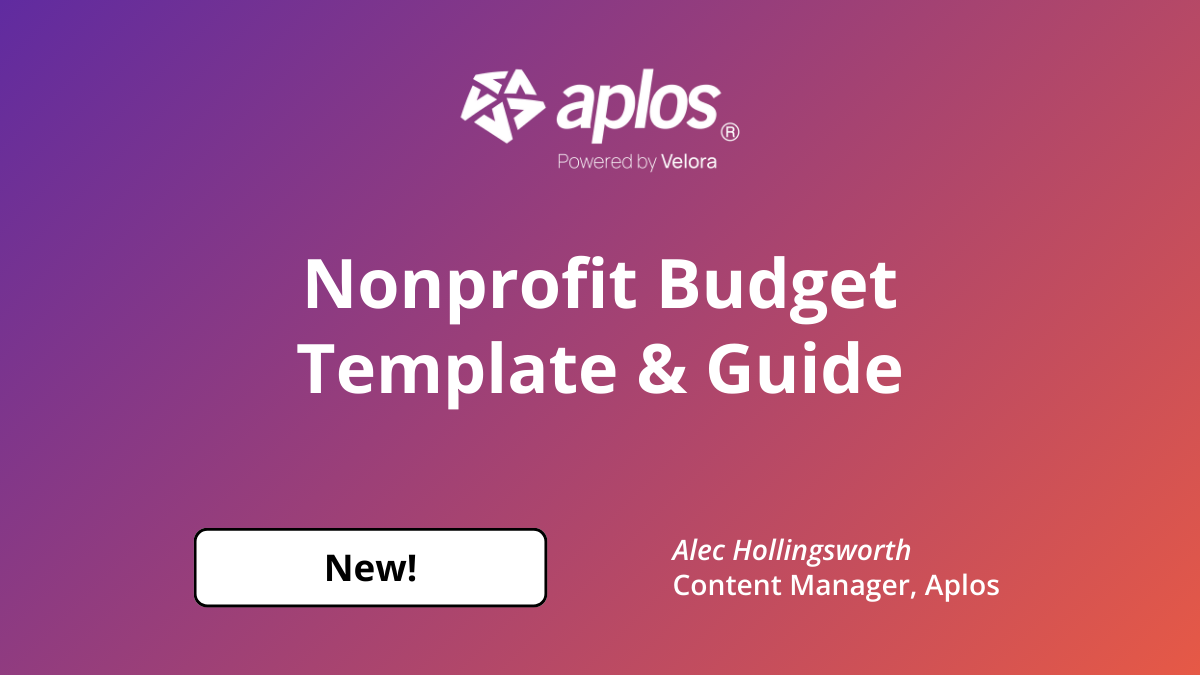.png)
How Do Nonprofits Pay Employees? A Guide for Financial Certainty

How Do Nonprofits Pay Employees?
Paying employees fairly and legally is essential for any nonprofit. This guide covers how to structure compensation, stay compliant, and support your team without straying from your mission or budget.
You’ll learn about salary funding, legal requirements, and best practices to keep payroll running smoothly and aligned with your mission.
Key Takeaways
- Nonprofits pay employees from diverse revenue sources, which can be used to pay staff members, adhering to “reasonable compensation” guidelines.
- Nonprofits must follow the same payroll, wage, and tax laws as any employer.
- Boards must review and approve executive pay to ensure legal and ethical compliance.
- Employee benefits are a vital part of total compensation, attracting and retaining talent.
- Creative, low-cost benefits can effectively support staff even with limited budgets.
- Accurate classification of employees versus independent contractors is crucial for tax and legal compliance.
- Fund accounting solutions, like Aplos, help manage financial records for compliance and clarity.
Understanding Nonprofit Compensation
Nonprofits, like businesses, employ staff. Their salaries are essential operating expenses, funded by the organization’s revenue. This includes donations, grants, and program fees.
It’s a misconception that nonprofit work is always volunteer-based. Paid staff are vital for daily operations and strategic goals. It is important to have a dedicated staff member to oversee HR or payroll matters, ensuring compliance and smooth management of employment issues.
A core principle is “reasonable” compensation, not “excessive,” to maintain tax-exempt status. This isn’t a fixed amount, but depends on factors like employee qualifications, role complexity, and market rates. Boards must document their salary decisions, using comparative data for justification. Fair pay for all staff members is essential for organizational stability and legal compliance.
Legal and Ethical Considerations
Nonprofits adhere to federal and state labor laws, including minimum wage and overtime for non-exempt employees. When it comes to minimum wage, nonprofits must pay at least the federal minimum wage or the state minimum wage, whichever is higher, to ensure compliance. Adhering to the state's minimum wage requirements is essential for maintaining legal and ethical wage practices. Misclassifying employees as independent contractors can lead to penalties.
Ethically, compensation must not result in “inurement,” meaning profits shouldn’t privately benefit individuals. Compensation should reflect skills and responsibilities. Transparency is key; IRS Form 990 requires reporting high-paid employee compensation, making it public.
Sources of Funding for Salaries
Employee salaries come from various revenue streams. Individual contributions and donations, gathered via campaigns and events, are common. Nonprofits can also generate income through fundraising events such as galas, walkathons, and silent auctions, as well as by offering consulting services to other organizations.
Grants from foundations or government agencies are another significant source. Many grants allow for “personnel” or “administrative costs,” but always check funder guidelines.
“Earned income” from mission-aligned goods or services, like museum admissions or membership fees, also contributes. Diversifying these revenue streams creates financial stability for payroll and other expenses. It is important for nonprofits to allocate specific funds to fund payroll, ensuring that staff salaries are covered through restricted or unrestricted funding sources.
Using payroll software can help nonprofits manage payroll processes efficiently, automating tax filings, wage calculations, and benefits deductions to save time and ensure compliance.
Using Grant Money for Salaries
Grant funds can often pay salaries. Grant budgets usually include line items for personnel costs, supporting staff for grant-funded activities. Reviewing funder guidelines for policies on salaries and indirect costs is essential.
Meticulous record-keeping is vital when using grant funds for salaries. Document that salary portions align with time spent on specific grant activities. Timesheets tracking hours and payments by pay period and by project are often required for reporting and audits.
Determining Fair Compensation
Setting fair salaries requires a strategic approach. The goal is equitable pay that aligns with the nonprofit’s financial health.
Conducting salary surveys or using comparability data is a key step. These resources show what other similar nonprofits and other organizations pay for comparable roles in the same area, helping you benchmark compensation effectively.
Internal equity is also crucial: ensuring similar compensation for similar experience and responsibilities within your organization. Clear job descriptions and pay grades foster this equity. Some roles may command a higher salary based on market data, industry, and specific requirements.
When determining total compensation, it's important to consider offering a comprehensive compensation package that includes not just salary, but also benefits and other rewards.
The Board's Role in Compensation Approval
The board of directors oversees and approves compensation, especially for executive directors and their compensation packages. This is a critical governance function. The board should have a documented, annual process for executive compensation review, including consideration of fixed annual salary structures for leadership roles.
A compensation committee can research and recommend. They should consider data, executive performance, and the nonprofit’s financial health. Board approval demonstrates due diligence and protects the organization from accusations of excessive compensation.
Beyond Salary: Employee Benefits
Benefits significantly enhance total compensation and aid in attracting and retaining talent. While strong benefits are valuable, monetary compensation remains a key factor for employees, as fair and direct salary payments cannot be fully replaced by perks alone. They can be a strategic advantage, especially against for-profit competitors, although higher salaries in the private sector can make recruitment challenging.
Common benefits include health, dental, and vision insurance, retirement plans (401(k) or 403(b)), and paid time off. Life and disability insurance are also frequently offered.
The IRS considers benefits part of total compensation. When assessing “reasonableness,” the cost of benefits must be included in the calculation.
Creative and Low-Cost Benefits
For nonprofits with tighter budgets, creative, low-cost benefits can still boost morale and retention.
- Flexible Work Arrangements: Telecommuting or flexible hours cost little but are highly valued.
- Professional Development: Supporting workshops, conferences, or memberships shows investment in staff growth.
- Positive Work Culture: A collaborative, appreciative environment is a powerful, no-cost benefit.
- Additional Paid Time Off: Extra days off, like the week between holidays, are appreciated perks.
- Wellness Initiatives: Simple programs like healthy snacks or mental health resources show care for well-being.
Payroll and Tax Obligations
Nonprofits have strict payroll and tax obligations. Nonprofit organizations must pay taxes such as payroll taxes, including federal income tax withholding, Social Security taxes, and federal unemployment taxes, in accordance with payroll tax rules and tax regulations. This includes withholding federal and state income taxes, plus Social Security and Medicare (FICA) from employees' paychecks. While a non profit organization is exempt from paying federal income taxes on its income, it must still withhold and remit federal income tax from employees' paychecks.
Nonprofits also typically pay federal and state unemployment taxes (FUTA and SUTA), though certain nonprofit organizations may be exempt from the federal unemployment tax. Tax-exempt status applies to the organization’s income, not its employer obligations, so nonprofit payroll must comply with all applicable payroll tax rules. Nonprofits pay their employees through regular pay periods, following nonprofit pay and payroll tax rules to ensure compliance and fair compensation.
Using a payroll service or software is common to ensure accurate payments, proper tax withholding, and timely filings. Nonprofit payroll processes help nonprofits pay their employees accurately and on time. This reduces administrative burden and minimizes errors.
Navigating Payroll for Different Employee Types
Nonprofits often manage different employee types.
- Salaried (Exempt) Employees: Paid a fixed amount, generally not eligible for overtime if they meet specific duty and salary tests.
- Hourly (Non-Exempt) Employees: An hourly employee is paid based on the number of hours worked, and hourly employees are eligible for overtime for hours over 40 weekly. Employees hourly must have their time tracked accurately. Nonprofits are required to pay overtime and provide overtime pay—one and a half times the regular rate—to hourly employees who work more than 40 hours per week, as required by the Fair Labor Standards Act (FLSA).
There are unique considerations for a nonprofit employee and nonprofit workers, including compliance with wage laws, funding constraints, and proper classification to ensure all legal requirements are met.
Independent contractors are not employees; the nonprofit doesn’t withhold taxes. Form 1099-NEC is typically issued if paid $600 or more. Correct classification is critical to avoid penalties.
Conclusion
Compensating nonprofit employees effectively is central to fulfilling your mission. Attracting and retaining qualified employees and talented employees requires fair and competitive compensation. Paid employees are essential for organizational success, yet many nonprofits in the nonprofit sector face challenges in offering competitive pay due to resource limitations. It involves understanding legal requirements, ethical considerations, and strategic financial planning. Nonprofits absolutely pay their employees, and doing so fairly and transparently is a sign of a well-managed organization.
By embracing data-driven decisions, clear policies, and a comprehensive view of total compensation, your nonprofit can create a supportive and motivating work environment. This investment in your team directly contributes to your organization’s long-term success and impact.
For nonprofits seeking to streamline financial management and ensure compliance, Aplos offers a dedicated fund accounting solution. Aplos helps track restricted funds, manage payroll, and generate reports, providing the financial clarity needed for informed decisions. Learn how Aplos can support your mission.
Frequently Asked Questions
What revenue sources can pay nonprofit salaries?
You can fund salaries with donations, grants, fundraising events, consulting services, and earned income like admissions or membership fees.
How should the board handle executive compensation?
Your board must review, document, and approve executive pay annually, using comparability data and a compensation committee if needed.
What payroll taxes must nonprofits withhold and pay?
You must withhold federal and state income taxes, FICA (Social Security/Medicare), and typically pay federal and state unemployment taxes (FUTA/SUTA).
Can grant funds pay salaries and what records are required?
Grants can fund salaries if allowed; you must follow funder guidelines and keep timesheets documenting hours and salary allocations for audits.
How should you classify contractors versus employees and forms to issue?
Classify workers correctly; independent contractors aren't employees, you don't withhold taxes, and you typically issue a 1099-NEC for $600+ payments.

Get started for free
Aplos has everything you need in one place for streamlined accounting - affordably.
Copyright © 2025 Aplos Software, LLC. All rights reserved.
Aplos partners with Stripe Payments Company for money transmission services and account services with funds held at Fifth Third Bank N.A., Member FDIC.
Copyright © 2024 Aplos Software, LLC. All rights reserved.
Aplos partners with Stripe Payments Company for money transmission services and account services with funds held at Fifth Third Bank N.A., Member FDIC.



.png)



